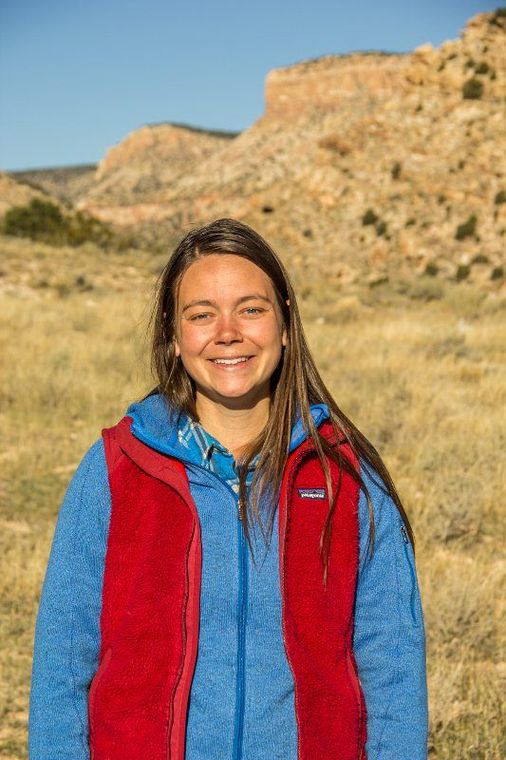Some information may be outdated.
The battle over Bears Ears is far from over. Since former President Obama designated the Bears Ears National Monument at the end of December 2016, the Utah delegation continues to threaten the future of this sacred landscape in southeastern Utah.
On Feb. 3, Gov. Gary Herbert signed HCR 11, a resolution urging the president to rescind the monument. In response, the Outdoor Retailer show is leaving Utah, and Native American tribes, conservation groups, and outdoor businesses have promised to litigate if the Trump administration revokes or shrinks the monument.
The public will soon learn the Trump administration’s position on Bears Ears, as Interior Secretary-designate Ryan Zinke says visiting Utah is his first priority. If confirmed, Zinke should stand with the Bears Ears National Monument and object to the Utah delegation’s disgraceful behavior toward Native people.
On the same day the Utah State Legislature publicly released HCR 11, opponents and supporters of the Bears Ears National Monument gathered for a facilitated dialogue at the University of Utah. Among the circle of participants, Utah State Senator Evan Vickers, R-Cedar City, asked, “Why so big?”
Gavin Noyes, executive director of Utah Diné Bikéyah, responded. The 1.35 million acres protected in the Bears Ears National Monument represents a tiny portion of the lands stolen from tribes. Noyes shared a story of documenting ancestral lands with Hopi elders. When asked to identify culturally significant areas on a map, the elders pointed to all of North America and parts of South America. Noyes said the Bears Ears National Monument is “a drop in the bucket.”
In addition, the Bears Ears National Monument leaves out nearly 600,000 acres of ancestral homeland that the Bears Ears Inter-Tribal Coalition sought to protect. Regina Lopez-Whiteskunk, a former councilwoman with the Ute Mountain Ute Tribe, said the question isn’t, “Why so big?” but rather, “Why so small?”
Zinke says he will prioritize working with Native Americans. If Zinke is saying this in earnest, then he should listen to the Bears Ears Inter-Tribal Coalition – a historic collaboration between the Hopi Tribe, the Navajo Nation, the Ute Mountain Ute Tribe, the Pueblo of Zuni and the Ute Indian Tribe.
The coalition worked tirelessly toward a legislative solution within Congressman Rob Bishop’s Public Lands Initiative (PLI). After receiving little respect or substantive engagement during multiple meetings, the coalition left the PLI to pursue a national monument with the Obama administration. After the PLI failed, President Obama used the Antiquities Act to designate the Bears Ears National Monument. The boundaries of the monument closely resemble the boundaries proposed in Bishop’s bill, so the objections are pure political theater.
The Bears Ears National Monument represents a critical step in reconciliation with tribes whose ancestors were forcibly removed from the area in the 1800s. The monument proclamation calls for long overdue collaboration between tribes and the federal government in management. With the establishment of a Bears Ears Commission, tribes will guide and assist in writing and implementing the monument management plan. Zinke says we must listen to Native Americans; the Obama administration created a framework for doing so.
Monument opponents may ask, “Why so big?” but in reality Bears Ears represents a small gesture toward healing. As Lopez-Whiteskunk says, “There’s so much we want to protect: the past and the future.” As out-of-touch Utah politicians convince outdoor brands to leave the state in protest, Zinke should rise above the political partisanship and listen to the Native people of this sacred desert landscape. As Interior Secretary, it is Zinke’s duty to protect the past and future. To fulfill this duty, he must respect Native voices and stand in support of the Bears Ears National Monument.
Brooke Larsen grew up in Salt Lake City and is a current student in the University of Utah Environmental Humanities Graduate Program. She organizes Uplift, a climate action community across the Colorado Plateau.
As out-of-touch Utah politicians convince outdoor brands to leave the state in protest, Zinke should rise above the political partisanship and listen to the Native people of this sacred desert landscape.
Appreciate the coverage? Help keep local news alive.
Chip in to support the Moab Sun News.



